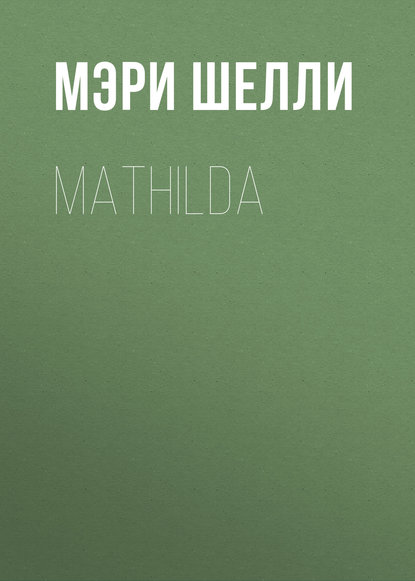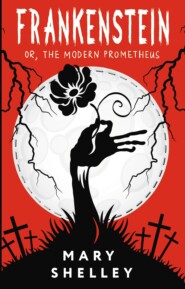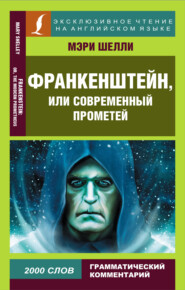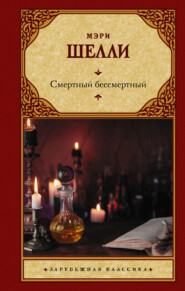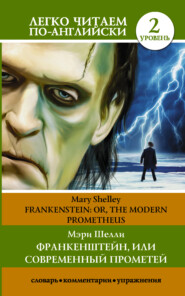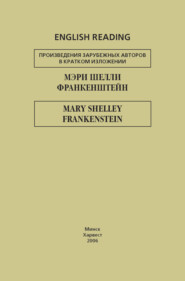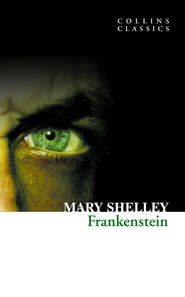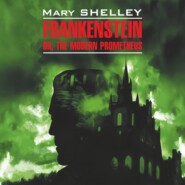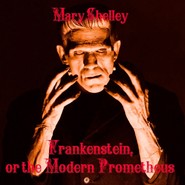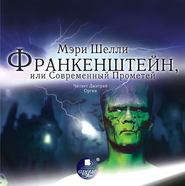По всем вопросам обращайтесь на: info@litportal.ru
(©) 2003-2024.
✖
Mathilda
Настройки чтения
Размер шрифта
Высота строк
Поля
Fletcher's comedy of the Captain.
47
At this point (f. 56 of the notebook) begins a long passage, continuing through Chapter V, in which Mary's emotional disturbance in writing about the change in Mathilda's father (representing both Shelley and Godwin?) shows itself on the pages of the MS. They look more like the rough draft than the fair copy. There are numerous slips of the pen, corrections in phrasing and sentence structure, dashes instead of other marks of punctuation, a large blot of ink on f. 57, one major deletion (see note 32).
48
Lord Byron
49
In the margin of F of F – A Mary wrote, "Lord B's Ch
Harold." The reference is to stanzas 71 and 72 of Canto IV. Byron compares the rainbow on the cataract first to "Hope upon a death-bed" and finally
Resembling, 'mid the torture of the scene,
Love watching Madness with unalterable mien.
50
In F of F – A Mathilda "took up Ariosto & read the story of Isabella." Mary's reason for the change is not clear. Perhaps she thought that the fate of Isabella, a tale of love and lust and death (though not of incest), was too close to what was to be Mathilda's fate. She may have felt – and rightly – that the allusions to Lelia and to Myrrha were ample foreshadowings. The reasons for the choice of the seventh canto of Book II of the Faerie Queene may lie in the allegorical meaning of Guyon, or Temperance, and the "dread and horror" of his experience.
51
With this speech, which is not in F of F – A, Mary begins to develop the character of the Steward, who later accompanies Mathilda on her search for her father. Although he is to a very great extent the stereptyped faithful servant, he does serve to dramatize the situation both here and in the later scene.
52
This clause is substituted for a more conventional and less dramatic passage in F of F – A: "& besides there appeared more of struggle than remorse in his manner although sometimes I thought I saw glim[p]ses of the latter feeling in his tumultuous starts & gloomy look."
53
These paragraphs beginning Chapter V are much expanded from F of F – A. Some of the details are in the S-R fr. This scene is recalled at the end of the story. (See page 80) Cf. what Mary says about places that are associated with former emotions in her Rambles in Germany and Italy (2 vols., London: Moxon, 1844), II, 78-79. She is writing of her approach to Venice, where, twenty-five years before, little Clara had died. "It is a strange, but to any person who has suffered, a familiar circumstance, that those who are enduring mental or corporeal agony are strangely alive to immediate external objects, and their imagination even exercises its wild power over them… Thus the banks of the Brenta presented to me a moving scene; not a palace, not a tree of which I did not recognize, as marked and recorded, at a moment when life and death hung upon our speedy arrival at Venice."
54
The remainder of this chapter, which describes the crucial scene between Mathilda and her father, is the result of much revision from F of F – A. Some of the revisions are in S-R fr. In general the text of Mathilda is improved in style. Mary adds concrete, specific words and phrases; e.g., at the end of the first paragraph of Mathilda's speech, the words "of incertitude" appear in Mathilda for the first time. She cancels, even in this final draft, an over-elaborate figure of speech after the words in the father's reply, "implicated in my destruction"; the cancelled passage is too flowery to be appropriate here: "as if when a vulture is carrying off some hare it is struck by an arrow his helpless victim entangled in the same fate is killed by the defeat of its enemy. One word would do all this." Furthermore the revised text shows greater understanding and penetration of the feelings of both speakers: the addition of "Am I the cause of your grief?" which brings out more dramatically what Mathilda has said in the first part of this paragraph; the analysis of the reasons for her presistent questioning; the addition of the final paragraph of her plea, "Alas! Alas!.. you hate me!" which prepares for the father's reply.
55
Almost all the final paragraph of the chapter is added to F of F – A. Three brief S-R fr are much revised and simplified.
56
Decameron, 4th day, 1st story. Mary had read the Decameron in May, 1819. See Journal, p. 121.
57
The passage "I should fear … I must despair" is in S-R fr but not in F of F – A. There, in the margin, is the following: "Is it not the prerogative of superior virtue to pardon the erring and to weigh with mercy their offenses?" This sentence does not appear in Mathilda. Also in the margin of F of F – A is the number (9), the number of the S-R fr.
58
The passage "enough of the world … in unmixed delight" is on a slip pasted over the middle of the page. Some of the obscured text is visible in the margin, heavily scored out. Also in the margin is "Canto IV Vers Ult," referring to the quotation from Dante's Paradiso. This quotation, with the preceding passage beginning "in whose eyes," appears in Mathilda only.
59
The reference to Diana, with the father's rationalization of his love for Mathilda, is in S-R fr but not in F of F – A.
60
In F of F – A this is followed by a series of other gloomy concessive clauses which have been scored out to the advantage of the text.
61
This paragraph has been greatly improved by the omission of elaborate over-statement; e.g., "to pray for mercy & respite from my fear" (F of F – A) becomes merely "to pray."
62
This paragraph about the Steward is added in Mathilda. In F of F – A he is called a servant and his name is Harry. See note 29.
63
This sentence, not in F of F – A, recalls Mathilda's dream.
64
This passage is somewhat more dramatic than that in F of F – A, putting what is there merely a descriptive statement into quotation marks.
65
A stalactite grotto on the island of Antiparos in the Aegean Sea.
66
A good description of Mary's own behavior in England after Shelley's death, of the surface placidity which concealed stormy emotion. See Nitchie, Mary Shelley, pp. 8-10.
67
Job, 17: 15-16, slightly misquoted.
68
The mother of Prince Arthur in Shakespeare's King John. In the MS the words "the little Arthur" are written in pencil above the name of Constance.
69
Coleridge's Fire, Famine and Slaughter.





